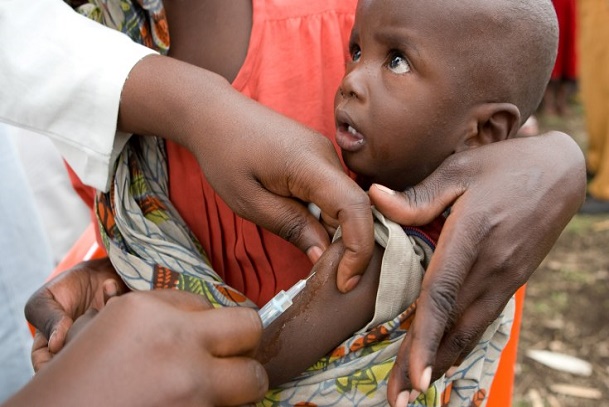 Wash your hands regularly and wear a face mask.
Learn more
Wash your hands regularly and wear a face mask.
Learn more

Treatment of Measles
Measles is one of the contagious viral infections in the world today yet there’s no specific treatment for it. Just like other viral infections (unlike bacterial infections), they are insensitive to antibiotics, thus making it cure uneasy. This viral infection typically disappears in about two – three weeks after contraction.
There are several ways in which people who have been exposed to this virus can seek help so as to help prevent further infections or lessen its severity. Doctors could recommend to the patient a vaccine within 72 hours of exposure to the virus; dose of Immunoglobin (taken within 6 days of exposure); enough rest to boost the immune system and plenty of fluids to prevent dehydration; vitamin A supplements; drugs to ease cough and sore throat.
Also, the following measures can also help during treatment of measles if the symptoms of measles are causing discomfort for both adult and children:
Prevention of Measles
Measles can be prevented by vaccination with the measles, mumps and rubella (MMR) vaccine. People who have already had measles are normally immune and they are unlikely to get it again. And also, people who are not immune should consider the measles vaccine. Peradventure a patient can’t receive the MMR vaccine, a treatment called human normal immunoglobulin (HNIG) can be used if you're at immediate risk of catching measles.
The measles, mumps and rubella (MMR) vaccine is the most used vaccine against measles and is usually administered in two different ways. That is the routine vaccination and special circumstances vaccination.
The MMR vaccine is given as part of the routine childhood vaccination programme. A dose is usually given to a child when they're 12 to 13 months old. A second dose is given at 3 years and 4 months.
Children and their parents can be vaccinated at any point if they have not been fully vaccinated before against measles. Also, if an individual isn’t sure of being vaccinated against measles (i.e. using the MMR vaccine); having another vaccine again wouldn’t cause any harm.
A dose of the MMR vaccine can also be given to anyone over 6 months of age if they're at immediate risk of catching measles. This need could arise if:
Children who have the vaccine before their first birthday should still have the second routine doses at around 13 months of age and 3 years and 4 months.
Human normal immunoglobulin (HNIG) is a special concentration of antibodies that can give short-term but immediate protection against measles.
It may be recommended for people in the following groups if they have been exposed to someone with measles:
HNIG should ideally be given within 6 days of exposure.
Other Prevention Methods
Not everyone can receive the measles vaccination. But there are other ways that you can help to prevent the spread of measles especially if an individual can easily contact any form of infection
Also a patient with measles should:
Measles During Pregnancy
Pregnant women who don’t have immunity to measles should take care to avoid exposure during their pregnancy. Measles during pregnancy can have significant negative health effects on both the mother and fetus.
Pregnant women are at an increased risk for complications from measles such as pneumonia. Additionally, having measles while pregnant can lead to the following pregnancy complications:
Measles can also be transmitted from mother to child if the mother has measles close to her delivery date. This is called congenital measles. Babies with congenital measles have a rash after birth or develop one shortly afterward. They’re at an increased risk of complications, which can be life-threatening.